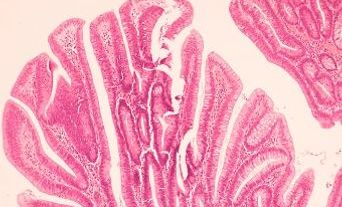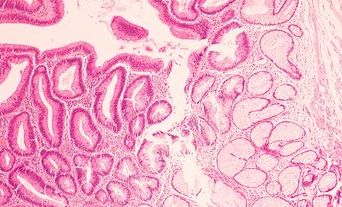Since its creation as the world’s first bone marrow register in 1974, Anthony Nolan has strived to save the lives of blood cancer patients by matching them with suitable stem cell donors. This was the driving goal of Shirley Nolan, who established the charity in the name of her son Anthony after she was told the only chance of curing his Wiskott– Aldrich syndrome would be through a stem cell transplant from an unrelated donor.
Tragically for Shirley, with no worldwide register to search at the time, a suitable donor couldn’t be found and Anthony died a few years later. Through her tireless dedication, our register grew and grew. It now has over 850,000 potential adult donors and our cord blood bank stores over 10,000 cord units. Thanks to our amazing donors and dedicated staff, Anthony Nolan gives three people a second chance of life through a stem cell transplant every day.
As the only registry that imports stem cells into the UK and the only one with a dedicated volunteer courier service, we were responsible for coordinating delivery of the UK’s international donations throughout the pandemic.
As you might expect, the last 12 to 18 months have been some of the most challenging the charity has ever faced. The pandemic saw the number of transplants taking place reduce dramatically as clinical guidelines recommended most transplants be deferred, if clinically possible, to protect clinically extremely vulnerable patients.1,2 Not only did this impact our ability to directly save lives, but some of our existing clinical research projects had to be paused too.
Business as usual?
The pandemic brought immense challenges to all aspects of daily life and the world of stem cell transplantation was no exception. Hospitals were obviously concerned with protecting high-risk immunocompromised patients, changes in transplant priorities and stretched staffing capacity. At the same time, stem cell registries had to ensure they continued to deliver donated stem cells and cord blood units to patients within 72 hours of collection, despite severe travel disruption, international quarantines and testing requirements.
As the only registry that imports stem cells into the UK and the only one with a dedicated volunteer courier service, we were responsible for coordinating delivery of the UK’s international donations throughout the pandemic. Our Heathrow transport hub, established days before the first lockdown, was fundamental to ensuring over 240 stem cell donations reached their destinations on time.
During this time, there was an increased risk of donors developing COVID-19 and being unable to donate. To combat this risk of drop-out, where possible, we provided a wider range of potential adult donors and suitable cord blood options at the search stage. Our Stem Cell Therapy Centre in Nottingham became licensed to cryopreserve adult stem cell donations, which provided life-saving reassurances in the event of last-minute delays.
Anthony Nolan also coordinated a weekly National Bone Marrow Transplant meeting bringing together all the centres with the British Society of Blood and Marrow Transplantation and Cellular Therapies (BSBMTCT) and NHS England. This allowed real-time interaction to ensure rapid dissemination of knowledge and site reporting, which allowed mutual support as required. BSBMTCT also produced regular COVID-19 guidelines with version one produced prior to the first national lockdown. We are now on version seven3 and, more recently, a vaccination guideline was also updated.4
It’s important that the experiences of registries during this time are disseminated to the wider transplant community so that lessons can be learnt for the future. We are currently preparing a manuscript of our findings for publication later this year.
Protecting our donors and patients
Our donors are at the centre of everything we do and we could not continue our life-saving work without their trust. Despite many challenges, their dedication to helping someone in need continues to amaze us. Many donors have been rightly concerned about their own safety and our dedicated staff have been on hand to give advice and ensured regular testing was provided throughout.

We continued to support our patients throughout this time. Our grants programme was expanded to cover problems caused by the pandemic and we established a dedicated telephone service offering emotional support. We also advocated for a range of issues on their behalf, including priority vaccinations for themselves and their support bubbles.
Patient-focused research
Recovering from a stem cell transplant is a long and difficult journey for many of our patients.5,6 Some of these challenges are caused by the transplant itself, but others arise from the individual’s social status, financial situation or lack of a suitable support network.7,8 Our patient services team wants to develop a better understanding of these challenges, but it was not deemed suitable to initiate this work during the pandemic.
Our newly launched ‘adoption’ programme supports the development of healthcare professionals with an interest in stem cell transplantation.
The SEQUOL (Socio-Economic Impact on Quality of Life) study will improve our understanding of how an individual’s circumstances might affect the likelihood of them encountering difficulties during their recovery. It will identify which patients could benefit from additional support and specialised services. This data-driven approach will also reveal potential gaps or inequalities in how healthcare is provided throughout the UK and allow our policy and public affairs team to lobby for better support and investment in services. COVID-19 has clearly magnified many of these issues.
Our newly launched ‘adoption’ programme supports the development of healthcare professionals with an interest in stem cell transplantation. We are encouraging these experts to pursue their own research studies in areas such as late effects, sexual health, diet and physiotherapy, so that we can provide the best possible services for our patients.
Clinical trials
IMPACT is a partnership of organisations committed to improving the outcomes of stem cell transplant patients through the delivery of clinical trials across the UK. It’s jointly funded by Anthony Nolan, Leukaemia UK and NHS Blood and Transplant.
During the pandemic, its five active trials were suspended, but through lots of hard work by everyone in the team, I am delighted to say recruitment has reopened. Most trials are already back on track to meet their recruitment targets and we recently achieved the milestone of recruiting our 500th IMPACT patient.
Two new trials have been approved. One will look at how transplant patients respond to COVID-19, which was proposed and set up in just eight weeks. The second aims to identify suitable patients, who are at high risk of developing graft versus host disease, for a new antibody treatment. IMPACT is also proud to be supporting the OCTAVE study, which is looking at how effective COVID-19 vaccines are in patients with cancer, especially BMT and CAR-T patients.
Anthony Nolan has also joined the Blood Cancer UK Vaccine Research Collaborative, a group of organisations led by Blood Cancer UK in partnership with Myeloma UK and the British Society for Haematology. It was created to fund research to find out how effective COVID-19 vaccines are for people with blood cancer and to collate individual research projects into one large meta-analysis study. Early data from these studies shows that for some malignant haematology and stem cell transplant patients, the response is less than satisfactory. There remain many unanswered questions.
Developing new advanced therapies
Our cell and gene therapy service continues to be a key priority as we strive to develop new advanced therapy medicinal products for patients, at the same time as diversifying our income during a time when fundraising has been challenging for many charities.
Decades of facilitating transplants means we have the infrastructure and logistics to supply cellular starting materials to academic and commercial organisations developing new cell-based treatments. In many respects, there are clear similarities between the journey of a stem cell destined for transplantation and one intended for research (Figure 1). Our unparalleled knowledge of histocompatibility, immunogenetics, donor transplant services and cord blood banking allows us to provide a service of the highest quality which will ultimately save and improve the lives of more patients.

One key positive to draw from this whole experience is that our relationships with transplant centres, courier partners, international registries and regulators are stronger than ever. Through regular email communications and direct calls to transplant directors, we have developed a better understanding of each other’s needs and worked collaboratively to develop solutions to ever-changing issues.
Most trials are already back on track to meet their recruitment targets and we recently achieved the milestone of recruiting our 500th IMPACT patient.
Like many of our patients' experience during their recovery, Anthony Nolan is adjusting to its ‘new normal’ in this post-pandemic world. I believe the organisation has become far more resilient, in the ways we work both internally and externally.
The continued expansion of our cell and gene service means we can develop new treatments to further benefit even more patients while generating additional income. Coupling this with potential new commercial opportunities in our sequencing laboratories has made our income streams more diverse, which will hold us in good stead for the future.
Now we can return to Shirley Nolan’s dream of finding a suitable donor for everyone in need of a stem cell transplant. Our focus must be on ensuring that there is equity of access to all treatments irrespective of a patient’s social standing or ethnic background. For the moment COVID-19 remains an obstacle which we will undoubtedly, as a community, overcome.



